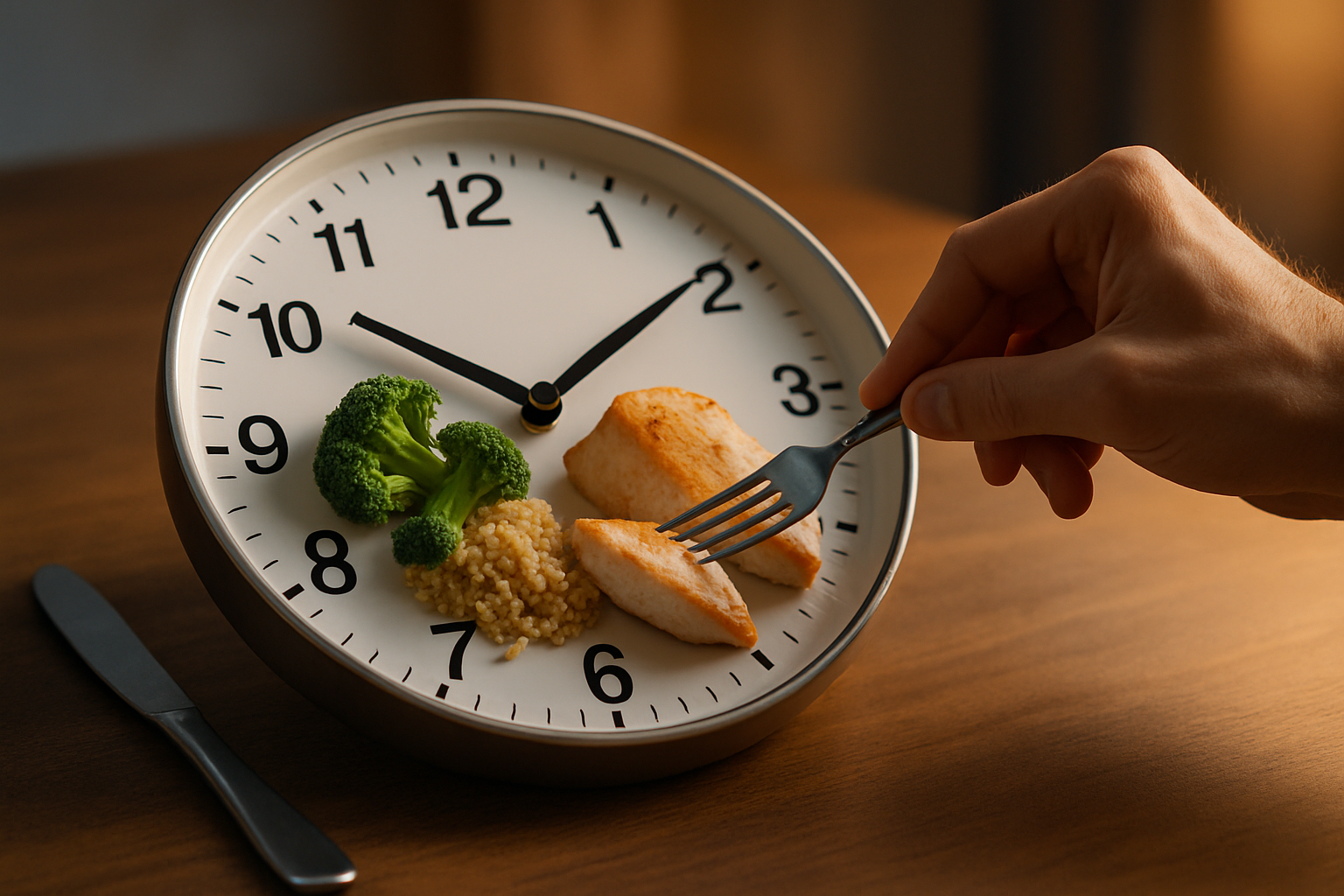Chronodiet: Syncing Meals with Your Body Clock for Optimal Health
Imagine a dietary approach that doesn't just focus on what you eat, but when you eat it. Welcome to the world of chronodiet, a revolutionary concept that aligns your meals with your body's natural circadian rhythms. Could the timing of your meals be the missing link in your quest for better health and wellness?

Research has shown that our bodies process food differently at various times of the day. For instance, insulin sensitivity is highest in the morning and decreases as the day progresses. This means our bodies are better equipped to handle carbohydrates earlier in the day, potentially reducing the risk of blood sugar spikes and energy crashes.
Key Principles of Chronodiet
Chronodiet isn’t about restricting specific foods but rather about optimizing meal timing to work with your body’s natural rhythms. Here are some fundamental principles:
-
Eat within a 12-hour window: This aligns with your body’s active phase and allows for a 12-hour fasting period during sleep.
-
Have your largest meal at midday: This is when your digestive system is most efficient.
-
Avoid late-night eating: Consuming food close to bedtime can disrupt sleep and metabolism.
-
Front-load your calories: Eat more in the first half of your day when your body is primed to use the energy efficiently.
Potential Benefits of Chronodiet
Adherents of chronodiet report numerous benefits, many of which are supported by emerging research:
-
Improved metabolic health: Studies suggest that aligning eating patterns with circadian rhythms can lead to better glucose control and insulin sensitivity.
-
Weight management: By eating in sync with your body clock, you may naturally consume fewer calories and improve weight loss efforts.
-
Better sleep quality: Avoiding late-night meals can lead to more restful sleep, as your body isn’t busy digesting when it should be repairing and regenerating.
-
Enhanced energy levels: By providing fuel when your body is most equipped to use it, chronodiet can lead to more consistent energy throughout the day.
-
Potential longevity benefits: Some research indicates that aligning eating patterns with circadian rhythms may contribute to cellular health and longevity.
Implementing Chronodiet in Your Life
Transitioning to a chronodiet doesn’t have to be drastic. Here are some practical steps to get started:
-
Establish a consistent eating schedule: Try to eat your meals at the same time each day to help regulate your body clock.
-
Gradually narrow your eating window: If you currently eat over a 15-hour period, start by reducing it to 14 hours, then 13, until you reach a 12-hour window.
-
Shift your largest meal earlier: If you’re used to having your biggest meal in the evening, try moving it to lunchtime.
-
Pay attention to your body: Notice how you feel when you eat at different times and adjust accordingly.
-
Consider your lifestyle: Adapt the principles of chronodiet to fit your work schedule and family commitments.
Challenges and Considerations
While chronodiet shows promise, it’s not without its challenges. Social engagements, shift work, and travel can all disrupt eating schedules. Additionally, the optimal eating window may vary between individuals based on genetics, age, and lifestyle factors.
It’s also important to note that chronodiet is not about severe calorie restriction or eliminating food groups. The focus is on timing, not deprivation. As with any significant dietary change, it’s advisable to consult with a healthcare professional before starting, especially if you have existing health conditions.
The Future of Chronodiet Research
As interest in chronodiet grows, so does the body of research supporting its potential benefits. Scientists are exploring how chronodiet might be tailored to individual circadian types (e.g., night owls vs. early birds) and how it could be used in the management of specific health conditions like diabetes and obesity.
Emerging studies are also investigating the interplay between chronodiet and exercise timing, as well as its impact on cognitive function and mood regulation. As our understanding of chronobiology deepens, we may see more personalized approaches to chronodiet, potentially revolutionizing how we think about nutrition and health.
Chrono-Wellness Tips
-
Start your day with a glass of water to rehydrate after the night’s fast
-
Expose yourself to natural light in the morning to help regulate your body clock
-
Try to eat your last meal at least 3 hours before bedtime
-
Incorporate protein-rich foods in your breakfast to stabilize blood sugar levels
-
Consider using a meal-tracking app to monitor your eating window
-
Experiment with herbal teas in the evening as a replacement for late-night snacks
In conclusion, chronodiet offers a fresh perspective on nutrition that goes beyond what we eat to consider when we eat. By aligning our meals with our body’s natural rhythms, we may unlock new pathways to improved health and wellbeing. As research in this field continues to evolve, chronodiet could become a powerful tool in our quest for optimal health, offering a harmonious approach to nourishing our bodies in sync with nature’s clock.






